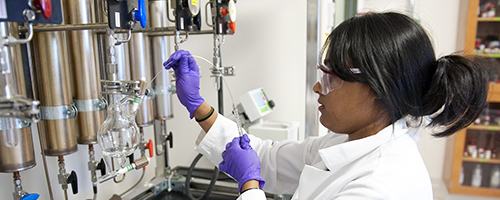Document Type
Article
Publication Date
7-8-2009
Publication Title
Journal of the American Chemical Society
Abstract
(Figure Presented) In vitro selection is a key component of efforts to discover functional nucleic acids and small molecules from libraries of DNA, RNA, and DNA-encoded small molecules. Such selections have been widely used to evolve RNA and DNA catalysts and, more recently, to discover new reactions from DNA-encoded libraries of potential substrates. While effective, current strategies for selections of bond-forming and bond-cleaving reactivity are generally indirect, require the synthesis of biotin-linked substrates, and involve multiple solution-phase and solid-phase manipulations. In this work we report the successful development and validation of reactivity-dependent PCR (RDPCR), a new method that more directly links bond formation or bond cleavage with the amplification of desired sequences and that obviates the need for solid-phase capture, washing, and elution steps. We show that RDPCR can be used to select for bond formation in the context of reaction discovery and for bond cleavage in the context of protease activity profiling.
Volume
131
Issue
26
First Page
9189
Last Page
9191
DOI
10.1021/ja903084a
ISSN
00027863
Rights
© 2009 American Chemical Society
Version
Version of Record
Recommended Citation
Gorin, David J.; Kamlet, Adam S.; and Liu, David R., "Reactivity-Dependent PCR: Direct, Solution-Phase In Vitro Selection for Bond Formation" (2009). Chemistry: Faculty Publications, Smith College, Northampton, MA.
https://scholarworks.smith.edu/chm_facpubs/64


